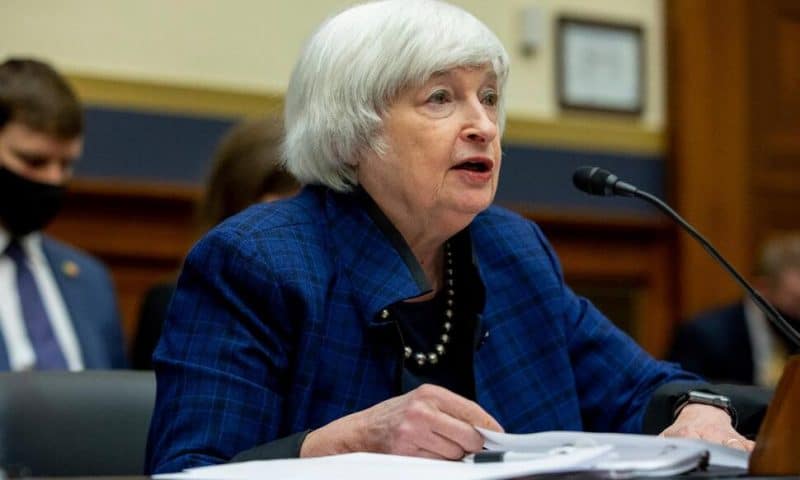The federal government last month posted its smallest monthly budget deficit in two years.
WASHINGTON — The federal government last month posted its smallest monthly budget deficit in two years thanks to a rebounding economy that helped boost tax receipts, coupled with slower spending as some COVID relief programs ended.
The Treasury Department reported Wednesday that the December deficit of $21.3 billion was the smallest monthly deficit since a $13 billion shortfall in December 2019. That was before the COVID pandemic hit in in the U.S. and pushed millions of people out of work and sent the economy into a short but steep recession
For the first three months of this budget year, which began on Oct. 1, the government has recorded a deficit of $377.7 billion. That’s 30.1% below the shortfall run up during the same period a year ago when the government was still spending trillions of dollars to keep the economy from falling into an even deeper funk.
Many of those government support programs have now ended or are being tapped less as more people get back to work.
In the October-December period, government revenues were up 30.1% compared to the same period a year ago. Tax revenues from individuals and corporations were both up by solid amounts, reflecting an economy growing this year at the fastest pace since the mid-1980s.
Government spending during that period rose by a much smaller 3.8% compared to the same period a year ago to $1.43 trillion. The government outlays and tax receipts, which totaled $1.05 trillion, were both records for the first three months of a budget year.
The December deficit of $21.3 billion compared to a deficit in December 2020 of $143.6 billion. There would have actually been a surplus last month if not for calendar quirks that required some government benefit payments for January to be paid in December.
The deficit for the 2021 budget year that ended in September was $2.78 trillion, the second highest in history. That followed a record $3.13 trillion deficit in the 2020 budget year, reflecting the massive government spending that occurred because of the COVID pandemic.
Economists believe that with the COVID spending winding down, this year’s deficit will be about half the size of the 2021 shortfall.
Oxford Economics is projecting a deficit of $1.40 trillion this year. Nancy Vanden Houten, an economist with the firm, said that figure is $70 billion higher than what she was forecasting in December, an increase that reflects the fact that Oxford Economics now expects the economy in 2022 to grow at a slower pace of around 4%, as measured by the gross domestic product.
That would be down from a December GDP forecast of 4.4% for 2022. Many economists have been lowering their growth forecasts for this year to reflect the surge in COVID cases in recent weeks.
If President Joe Biden fails to win congressional passage of his Build Back Better spending plan for improvements in the social safety net and combatting climate change, the deficit this year will be $100 billion to $150 billion lower than Oxford’s current estimate of $1.40 trillion, Vanden Houten said.

